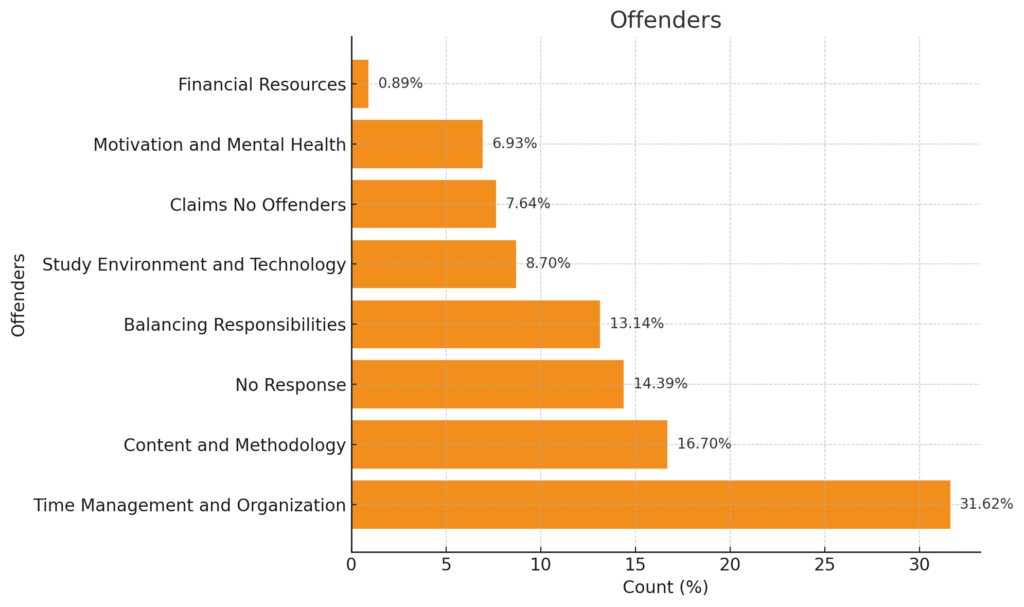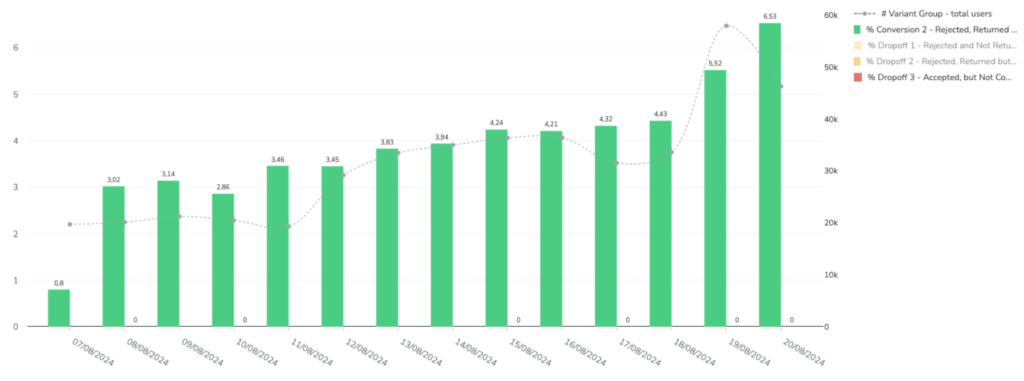Context and Problem
Through a discovery process, we identified that time management and balancing responsibilities were major barriers for students in completing online courses. About 45% of users reported at least one of those difficulties, leading to frustration, demotivation, and eventual course abandonment. Many users, especially those with content-heavy courses, struggled to maintain consistency and reach their learning goals due to poor planning.

Hypothesis
We hypothesized that offering a customized way of planning study would help users organize their time more effectively, resulting in improved course completion rates, increased engagement, and better overall learning outcomes.
Solution
We developed a customizable Study Plan feature. This allowed students to set their learning goals, select their preferred study days and times, and automatically generate a recurring schedule linked to their calendar. The system sent reminders to keep students on track, ensuring a consistent study routine.
Initially, the adoption funnel measured interest through a multi-step process:
- Users were prompted with a pop-up.
- Those who clicked on the call-to-action were directed to the study plan setup.
- Once the form was filled out, a calendar invite was sent, generating a recurring reminder for the student to follow the schedule.
| First Access: Upon accessing a course, a prompt will be displayed encouraging the student to create a study plan and explaining its benefits. | |
| CTA: If the user does not create the study plan on the first access, they can create it later by clicking on the button that will be displayed on the Course Home screen. | |
| Plan Configuration: The student defines their goal by selecting the days, times, and duration of the study period. | |
| Calendar Choice: The student chooses a calendar of their preference (Google Calendar, Outlook, Apple Calendar). | |
| Calendar Integration: The student is redirected to the chosen calendar application where the plan information is saved, and a recurring calendar event is automatically generated. |
Results
- The first version of the feature had a about 3% adoption rate, indicating room for improvement.
- After analyzing drop-off points, we made two key changes: adjusting the copy of the feature prompt to focus more on the user benefits and moving the prompt to appear after students completed their first lesson instead of at the beginning. This increased adoption to 6.5%.

- Students using the study plan demonstrated a 62% higher study frequency and spent more time on the platform compared to the control group, leading to greater consistency in their learning journey.
- While course completion rates improved, this feature proved particularly valuable for students enrolled in courses with extensive content, who found it difficult to organize their studies without structured support.
Learnings
- Timing and messaging are critical in driving adoption. By changing when and how we presented the feature, we saw a significant boost in engagement.
- The success of the study plan feature reinforced the importance of helping students develop a structured learning routine, especially for complex courses.
- Positive user feedback led us to explore additional tools aimed at helping students manage their time better. Based on these results, we are now investigating new features that can further enhance study efficiency and engagement, such as smart reminders and personalized progress tracking.
